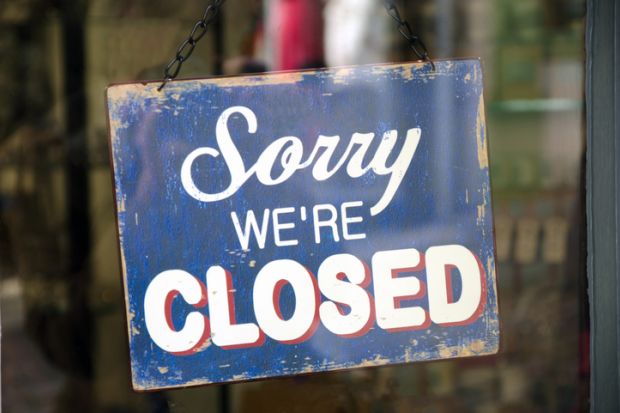Education Corporation of America, a chain of more than 70 for-profit US colleges, has announced its abrupt closure, throwing more than 15,000 students out of class just before the end of term.
The company, based in Alabama, blamed the decision on its ongoing financial difficulties compounded by unspecified new operating requirements imposed by the US Education Department.
“The uncertainty of these requirements resulted in an inability to acquire additional capital to operate our schools,” the company’s president, Stuart Reed, said in a letter to its students.
The broader reason for the failure reflects a tougher regulatory environment imposed by the Obama administration across the US for-profit sector, after such institutions spent years reaping profits from government-backed student loan programmes while providing low-value instruction to poorly qualified students.
That pressure has been compounded recently by the strengthening of the US economy, which lowered the supply of adult students seeking job retraining – a chief customer category at for-profit colleges.
Education Corporation of America also was entangled in the controversy over the Accrediting Council for Independent Colleges and Schools, one of the government-recognised agencies that grant federal accreditation status. ACICS was stripped by the Obama administration of its ability to certify colleges as worthy of federally subsidised student loans and grants, on the grounds that it had provided lax oversight of two other failed for-profit chains, Corinthian Colleges and ITT Tech.
Just two weeks ago, in a decision protested by Democrats in Congress, the Trump administration restored ACICS’ federal accrediting authority. And ACICS, under pressure to act tougher, moved on 4 November to suspend accreditation across most of Education Corporation of America’s campuses.
Mr Reed described that suspension as the final straw for his company, which had announced the closing of about a third of its campuses in September because of falling enrolment. Its final collapse brought denunciations from both Republicans and Democrats, albeit with different allocations of fault.
An Education Department spokeswoman fully blamed the company. “Instead of taking the next few months to close in an orderly fashion, ECA took the easy way out and left 19,000 students scrambling to find a way to finish the education programme they started,” she said in a statement.
Bobby Scott, a Democrat representative from Virginia who is due to take the chair of the House education committee next month, also chastised the company for suddenly leaving its students with “crippling debt” and “non-transferrable credits”.
But Mr Scott saved most of his condemnations for the Trump administration, saying that its reinstatement of ACICS demonstrated its failure to take seriously the irresponsible behaviours and risks associated with the colleges it has accredited.
The future awaiting the company’s students remains unclear. Education Corporation of America posted a brief statement on its website saying that it would provide the students with more information by around 17 December.
The Associated Press quoted a company spokeswoman as saying students at most locations would get academic credit for this term. But ACICS wrote to Mr Reed demanding evidence that students due to graduate this month at the company’s main cluster of campuses had successfully completed their programmes.
One of the company’s campuses, the New England College of Business, is remaining open.
Register to continue
Why register?
- Registration is free and only takes a moment
- Once registered, you can read 3 articles a month
- Sign up for our newsletter
Subscribe
Or subscribe for unlimited access to:
- Unlimited access to news, views, insights & reviews
- Digital editions
- Digital access to THE’s university and college rankings analysis
Already registered or a current subscriber? Login








